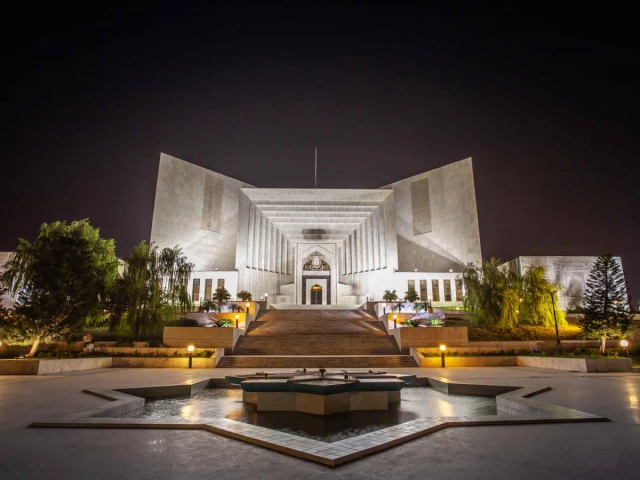SC reinforces women’s autonomy in khula, recognises psychological abuse
“Cruelty need not always manifest in physical violence,” states judgment authored by Justice Ayesha A Malik

In a landmark ruling, the Supreme Court has reinforced a woman’s autonomy in seeking Khula — the dissolution of marriage — and recognised psychological abuse as a valid ground for divorce, underlining that emotional and mental cruelty are as serious as physical violence in a marital relationship.
The judgment, authored by Justice Ayesha A Malik, was issued in response to a petition filed by Dr Seema Hanif Khan, who challenged the Peshawar High Court’s dismissal of her dissolution of marriage claim. The court had previously denied her request on the grounds that her husband’s consent was required and that reconciliation efforts had not been exhausted.
Key points from the judgment:
-
Khula is an independent and inalienable right and does not require the husband’s consent.
-
Psychological abuse is as serious as physical abuse in dissolving a marriage.
-
The Family Court must respect a woman’s autonomy and cannot assume her disobedience without evidence.
-
The husband’s second marriage without consent is a valid ground for dissolution.
-
The gold ornaments and dower items should be returned to the wife as part of her legal rights.
-
The court stated the need for gender-sensitive language and the elimination of patriarchal reasoning in family law.
Case history
Dr Seema filed a civil petition seeking the dissolution of her marriage based on the grounds of cruelty, non-payment of maintenance, and the husband’s second marriage without her consent. She argued that her husband had subjected her to mental and emotional abuse, and his actions had rendered the marriage irreconcilable.
Initially, the Family Court granted Khula (divorce initiated by the wife), but this was done without the wife's active request, which led to her challenging the ruling. She also sought the return of her dower, including gold and money, which the Family Court had incorrectly assumed was surrendered as part of the Khula agreement.
Upon appeal, the Peshawar High Court upheld the Family Court’s decision, stating that the dissolution of marriage could only be granted with the husband's consent and after all reconciliation efforts had been exhausted. The petitioner argued that the Court's ruling misinterpreted the grounds for dissolution and failed to recognise psychological abuse as a valid reason for Khula.
The court, after hearing the case, ruled that the Peshawar High Court's decision was incorrect, and it reinstated the Family Court’s decree of dissolution, affirming the right of the wife to seek Khula independently of her husband's consent.
It clarified that Khula is a voluntary right of the wife and cannot be made conditional upon the husband’s consent or judicial discretion. The court stressed that once the marital relationship breaks down irretrievably, the wife has the right to seek a dissolution of marriage, irrespective of the husband's willingness.
Justice Malik observed that the Family Court's role is not to force a woman to stay in a marriage where there is no harmony or substance. The court highlighted that Khula is a voluntary act initiated by the woman and cannot be imposed by the court without her clear consent.
Psychological abuse as grounds for divorce
The ruling marked a significant step in recognising psychological abuse — including humiliation, neglect, intimidation, and emotional abuse — as valid grounds for seeking a divorce under Islamic law. The court emphasised that mental cruelty can be as damaging as physical abuse, and a woman’s emotional well-being should be taken into account when assessing the viability of a marriage.
“Cruelty need not always manifest in physical violence,” the judgment stated. Psychological abuse, which diminishes a woman’s self-worth or subjects her to humiliation, was deemed equally destructive to the marital bond.
Gender equality and women's autonomy
The court also criticised the patriarchal interpretation used by the lower courts, which limited women’s agency and autonomy. The Family Court had mischaracterised the petitioner as a “disobedient wife”, solely based on her desire to pursue a career abroad. The court held that seeking education or career opportunities is not disobedience but an exercise of a woman’s personal autonomy.
The court noted that the language used in the lower court rulings reflected a gender-biased perspective that measured women’s worth by obedience rather than recognising their fundamental rights. This included the presumption that only an “obedient wife” could claim maintenance during the marriage, which the court dismissed as a misapplication of the law.
It further expressed its concern about the lower courts’ mischaracterisation of the petitioner’s actions and misapplication of the law. The Family Court’s reasoning that disobedience justified denying maintenance was wrong. The Supreme Court stated that maintenance is a statutory obligation of the husband and cannot be denied based on presumed disobedience.
Reaffirming women’s right to dignity and equality
In a further affirmation of women’s constitutional rights, the Supreme Court cited Articles 14, 25, and 35 of the Constitution, which guarantee dignity, equality before the law, and protection of the family. The court emphasised that the right to seek Khula embodies these guarantees, allowing women to withdraw from harmful marriages without the stigma that has traditionally been associated with seeking divorce.
Second marriage and violation of rights
The Supreme Court also dealt with the issue of the husband’s second marriage, which was contracted without the wife’s consent and in violation of the Muslim Family Laws Ordinance (MFLO). The court ruled that taking an additional wife without the first wife’s permission is a violation of the MFLO and a valid ground for dissolution under Section 2(ii-a) of the Dissolution of Muslim Marriages Act, 1939 (DMMA).
Gold jewellry and dower rights
The Supreme Court also addressed the recovery of gold ornaments, which the Family Court had initially denied to the petitioner. The Family Court ruled that because the petitioner did not lodge an FIR, she was not entitled to the recovery of gold.
The court dismissed this reasoning, stating that the recovery of gold ornaments (part of the dower) should not be contingent on an FIR. The gold and other dower items must be returned to the wife unless there is a valid reason not to do so. It emphasised the wife’s right to her dower, including gold ornaments, and ruled in her favor.
The verdict
The Supreme Court restored the Family Court’s decree of dissolution, recognising the petitioner’s right to seek divorce on the grounds of second marriage and psychological cruelty. It also ruled that the petitioner would retain her dower, which included the gold, money, and property given at the time of marriage.
The court’s ruling sets a critical precedent for future cases involving Khula, psychological abuse, and women’s autonomy in marriage, reinforcing that the dignity and freedom of women must be respected within the marital relationship.




















COMMENTS (8)
Comments are moderated and generally will be posted if they are on-topic and not abusive.
For more information, please see our Comments FAQ